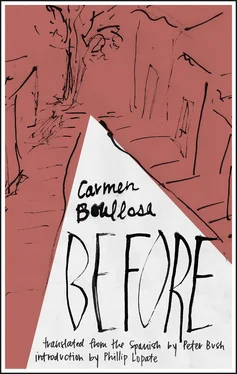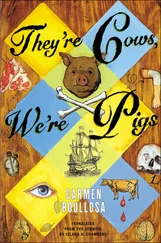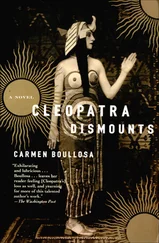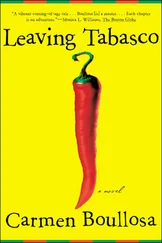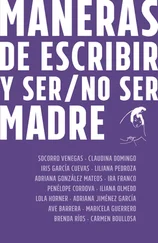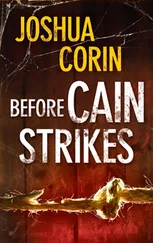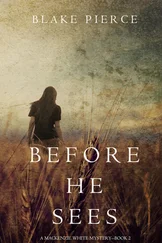Carmen Boullosa - Before
Здесь есть возможность читать онлайн «Carmen Boullosa - Before» весь текст электронной книги совершенно бесплатно (целиком полную версию без сокращений). В некоторых случаях можно слушать аудио, скачать через торрент в формате fb2 и присутствует краткое содержание. Год выпуска: 2016, Издательство: Deep Vellum Publishing, Жанр: Старинная литература, на английском языке. Описание произведения, (предисловие) а так же отзывы посетителей доступны на портале библиотеки ЛибКат.
- Название:Before
- Автор:
- Издательство:Deep Vellum Publishing
- Жанр:
- Год:2016
- ISBN:нет данных
- Рейтинг книги:4 / 5. Голосов: 1
-
Избранное:Добавить в избранное
- Отзывы:
-
Ваша оценка:
- 80
- 1
- 2
- 3
- 4
- 5
Before: краткое содержание, описание и аннотация
Предлагаем к чтению аннотацию, описание, краткое содержание или предисловие (зависит от того, что написал сам автор книги «Before»). Если вы не нашли необходимую информацию о книге — напишите в комментариях, мы постараемся отыскать её.
Part bildungsroman, part ghost story, part revenge novel,
tells the story of a woman who returns to the landscape of her childhood to overcome the fear that held her captive as a girl. This powerful exploration of the path to womanhood and lost innocence won Mexico's two most prestigious literary prizes.
Carmen Boullosa
Texas: The Great Theft
Before — читать онлайн бесплатно полную книгу (весь текст) целиком
Ниже представлен текст книги, разбитый по страницам. Система сохранения места последней прочитанной страницы, позволяет с удобством читать онлайн бесплатно книгу «Before», без необходимости каждый раз заново искать на чём Вы остановились. Поставьте закладку, и сможете в любой момент перейти на страницу, на которой закончили чтение.
Интервал:
Закладка:
At night, in a scene lit by our battery torches, most girls laughed at Susana Campuzano’s baby-doll outfit (a very short nightdress with matching panties) — she had positioned herself to my right to sleep and at that moment was making her triumphal entry into the gallery, tripping indiscreetly between the lines of sleeping bags, because, being timid, and experiencing the same age of transition as my sisters, she had gone to change her clothes in the dark countryside so nobody saw anything while all the rest of us mortals made a great play of taking our clothes off at the same time as we put others on in Houdiniesque contortions, given that our bodies were temples of the Holy Spirit to be seen by no one…she bounced in cheekily with her ridiculous, miniscule, nearly see-through nightwear, letting out short, sharp cries pretending to be imperceptible to denote shyness, when in reality she was continuously seeking attention, provoking a round of girlish ribaldry at the self-advertisement of her womanly body.
By the time she reached me, she’d stopped shouting. She slowed down and her two sad, blue eyes stared at me. She clambered into her sleeping bag. I saw her untidy hair slashed, the way many women treat their hair, irregularly, not able to fall naturally, almost mannish, but long enough to be pained by the shortness. I felt sorry for her. Then I thought how she certainly had wanted to hide her body from the gazes of the other girls, because I thought she must be ashamed it was no longer a girl’s body, and I thought of my sisters and felt sorry for them, and sorry for Esther, and I thought of Dad, felt sorry because I remembered only men go to war, and thought “How are we going to manage to hide him when they come to take him to the front?” and then stopped thinking about that as I said to myself, “But there is no war, though what if one breaks out?”
Once more, I caught sight of the girl beside me. She turned toward me when she felt my gaze spying on her. “Hey,” I said, wanting to be nice, sincerely moved by the situation. “I understand you, it’s happening to my sisters as well.”
“What is?” she retorted very prickly.
I kept a prudent silence because I wouldn’t have known what to say to her.
Then I was the one who turned over and thought: “This will never happen to me, I won’t let it,” and, thinking that, I fell asleep, not realizing my wishful fantasy would contribute to my own damnation.
12
We were having breakfast. I clearly heard something drop into our garden. In a loud voice I said I’d seen something drop down as if it had been hurled in from the street, but nobody believed me. They were right to a point: I hadn’t seen anything fall. I’d heard it fall so clearly that I could almost imagine the shape of the thing. I quickly finished breakfast and went into the garden by myself, running to the end under one side of the breakfast room.
Something had fallen inside the garden, as if hurled by the paperboy and it had flown over the wall. I’d been wrong about its shape, what shone out on the lawn was something small, flat, and light.
It shone and was beautiful: a gilt, plastic frame surrounded the luminous landscape on the shores of a metallic blue sea, a metallic blue sea with scrolls and button roses, and a fake gold-plated wooden frame. In the background, the mountains and between the mountains and the sea a village — but a European settlement, not a South American village — all on shiny paper, like chocolate wrapping paper, what we call orito —gold foil. A few women strolled along the seashore, or apparently enjoyed sitting on the quayside. Nobody was working. The windows in the little white houses were open and every little corner gleamed.
Nobody swam in the water, but two launches waited for passengers. In another, a white-haired man was fishing, alone, not wearing a hat.
In the lower right corner it said Razier . Naturally, I hung the picture in my room, next to the dressing table, to the left of the mirror. Who would see it? My sisters, I’ve already told you, didn’t join in my games anymore. Esther had her head in the clouds and Dad worked as never before. Neither of them asked me about the picture.
“Where did you get that from?” Inés asked when she saw it.
“I found it lying in the garden.”
“You expect me to believe that?”
“Really,” I insisted, “really, it was lying in the grass.”
“Who’d ever throw away such a pretty picture?”
She stood looking at it, weighed it up like I did, and thought like me it was a place worth getting to know. And I said: “Would you like to go there?”
She didn’t answer my question. Her face hardened and she turned her head but avoided looking me in the eye, and said: “I’d never go anywhere God hadn’t made.”
By a long shot, English class was the most entertaining in the whole school. Not having to restrict themselves to their academic duties, the level of English in the school being higher than the level required by the school authorities, the teachers let their imaginations fly, allowed us to work on projects in the library, go to museums, watch films, do a little bit of all the things they liked to do. As the holidays were approaching, Janet thought we could search the school atlases and encyclopedias for the place we’d like to go to. We could give free rein to our fantasies. Well, even the moon was possible if someone thought it would be a good place to go. Then we had to write in English the reasons for our choice, including all the data we collected, in our “research paper.”
Where do you think I wanted to go? To the place portrayed in the picture, of course. I looked for it in the atlas, on the globe of the world, in a beautiful volume of National Geographic , on a huge map of Europe hanging on one of the walls in the library. Not a trace. “Probably doesn’t even exist,” I thought. But I couldn’t believe it was an imaginary place. I looked in the Encyclopedia Britannica : its name and history were there. I went weak reading it, but what would I put in my project, if I didn’t read it? The fact it was in English was what made it most tedious: it was forbidden to copy out sentences word for word, frowned upon even more so if one didn’t attempt an original essay. My difficulty came on both sides: first, understanding it in English, then turning it into Spanish in my head, then turning it all back into English from a mother tongue base that I really didn’t like to detach myself from.
I asked the library nun for help. She had a name I can’t remember, something elephantine or so I thought. She didn’t speak a scrap of Spanish. I said to her, “Could you help me find this name in the Espasa Calpe ?” It was such a big encyclopedia that knowledge of the alphabet wasn’t enough to track something down. The nun helped me find it. It was a very large entry. Before disappearing in the middle of the tenth century…Or in other words it was a city that no longer existed that had gone up in flames after religious conflicts and after it was repeatedly punished for serving as a bed of heresy.
The day after I took my picture into school and showed it to Janet. I explained in my clumsy English that it had been thrown (I didn’t say to me, I said into the courtyard) and told her it was a place that no longer existed. “ Extrahno ,” she commented in her dreadful Spanish accent. That was it. She advised me to keep the picture in my knapsack so as not to distract my friends. Extrahno . That was all I got for sharing something of my own with other people. I wanted, intended her — friendly and apparently interested in her pupils’ work — to give me a hand with it, to find out who might have thrown the picture into my house and why. It was an omen. I knew it was: to represent a persecuted, ill-treated, and, finally one night, torched village, a night when most of its inhabitants perished in the collective bonfire, to represent that, I’m saying, as a tranquil holiday resort using bright shiny paper to do so, could only be the product of some malevolent will.
Читать дальшеИнтервал:
Закладка:
Похожие книги на «Before»
Представляем Вашему вниманию похожие книги на «Before» списком для выбора. Мы отобрали схожую по названию и смыслу литературу в надежде предоставить читателям больше вариантов отыскать новые, интересные, ещё непрочитанные произведения.
Обсуждение, отзывы о книге «Before» и просто собственные мнения читателей. Оставьте ваши комментарии, напишите, что Вы думаете о произведении, его смысле или главных героях. Укажите что конкретно понравилось, а что нет, и почему Вы так считаете.
